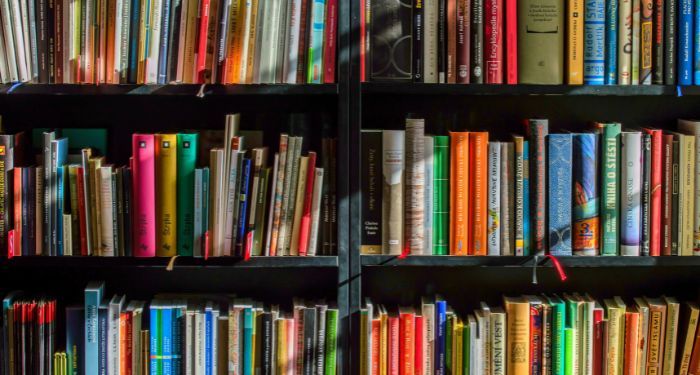Book Censorship News, March 22, 2024

Misconceptions about book bans are legion. When they’re perpetrated by folks who are against book banning, the truth is, those myths emerge not out of evil or desire to misinform. Instead, they come because this moment in book bans is unlike any other in American history. They also come because the average person—be they a book lover, a library worker, an educator, or simply someone who cares about democracy—is not steeped in this news day in and day out and, thus, does not see the whole of the picture. It’s not bad information. It’s a lack of information.
Let’s talk about a small number of misconceptions and why it is important to get these facts correct.
Book bans make kids/teens hurry to read the books being banned
This is not true, and it’s a statement that is shared with all of the love, thought, and care in the world—it’s also perpetrated by some of the biggest names in the book world who think they’re doing a favor by repeating it. Unfortunately, the sentiment and belief is not true.
Per a story by Danika Ellis last summer:
A Florida school librarian shared that she had a manga-loving student who checked out over 300 books the previous year, and came in daily to see if he was still the #1 user of the school library. When new restrictions brought in on a state level meant that the librarian could no longer order new manga, this student quickly ran out of material, and “after a few weeks, he stopped coming to the library.”
Book bans are driving kids away from libraries. Moreover, the severe restrictions placed on libraries and what they can acquire means that wish lists from students are not being fulfilled like they once were, either.
Recall that for many kids, the school library is the only place of book access available to them. No matter how many times book banners say they’re “only removing books from schools,” they’re doing the same things at public libraries. With book prices for YA titles reaching upwards of $25 a pop for hardcover and $16 for paperback, teens simply cannot afford to buy the books if they even have access to a local bookstore. No, most of them do not have credit cards to “just get them from Amazon,” either.
Indeed, as EdWeek reported, “Each new book challenged in a district reduced the probability that the district would buy a new book about LGBTQ characters by 4 percent.”
Authors benefit financially from book bans
Some of the most-banned authors have seen a minor bump in sales. But what about the vast majority of authors whose books are being banned?
They’re not seeing sales, y’all. It’s a myth.
What banned authors do experience, though, is having their books banned. The emotional toll of it is real; as is the financial toll—in too many cases, book bans mean those authors lose out on connecting with audiences and money that helps support their work as writers.
I’ve certainly seen no sales bump for my books being banned. What I have seen is that it’s led to more bans.
Moms For Liberty is responsible for the swell of book bans
Moms For Liberty might be powerful and might be the folks behind BookLooks, which continues to weasel its way into schools and libraries as if it’s some kind of legitimate, professional book review resource (it’s not, and neither is Common Sense Media). They are not the only group banning books, though.
Continuing to hammer this point home is important. By attributing book bans solely to Moms for Liberty, the dozens of other groups operating both on the national, regional, and local levels are overlooked and do not get the criticism they deserve.
Take, for example, what’s happening in Autauga-Prattville Public Library. Attributing the demands to remove books, which led to the firing of the library’s director for refusing to be complicit in banning, to Moms for Liberty would not only be inaccurate, but it would ignore the entire “Clean Up Prattville” group who put the wheels into motion. “Clean Up Prattville” is not Moms For Liberty, but it has been making its own agenda known in other communities across the country.
“Clean up Samuels,” for example, nearly got the Samuels Public Library in Virginia closed.
It is not possible to name every group here, in part because so many groups are operating within specific communities. These are not Moms For Liberty, and giving credit to that group does two things. First, it inflates their ego. Second, it allows for overlooking the dangerous book banning at the hands of other individuals and groups.
Know who is behind the banning in each community. If it’s Moms For Liberty, attribute it to them. If it’s No Left Turn in Education, attribute it to them. If it’s “Clean Up [fill in the blank],” name them. Clarity matters.
Book bans are only happening in states like Florida, Texas, and Alabama
If you’re still under this belief, you haven’t been reading the weekly roundups of book banning news. Unfortunately, even those who do pay attention are too quick to state that book bans are happening only in “those” states.
But it’s your backyard too. Even—and especially—in progressive states. Massachusetts, California, Illinois, Oregon, Minnesota, and Washington, to name six “blue” states, are all still experiencing book bans in schools and public libraries. By pretending it’s only some states, those stories not only get overlooked, but the blinders go up.
This creates the prime environment and fuel for mass quiet/soft/silent censorship.
In progressive areas, simply not buying the book or quietly removing it via “weeding,” that isn’t true weeding by policy, will create far less of a stir than outright banning.
It’s also important here to emphasize that stigmatizing entire states based on the actions of a few helps no one. No matter how many poor policies may come to fruition in states like Texas, uttering “Well, it’s Texas” helps no one. Texas politics are as they are not because of how the majority of people in the state vote. They’re that way thanks to systematic disenfranchisement of voters and districting that favors right-wing politicians.
The people most hurt by these kinds of statements or sentiments are the very people whose lives are being torn apart by these politicians and the people on the local level who are outright banning books about their lives.
Book bans only impact what’s in school classrooms and libraries
Nope.
Book bans are everywhere. But book banners have effectively written their lines such that they make it sound as if what they’re doing is simply aligning what’s available in schools with what they believe to be age and curriculum-appropriate. Thus why there are entire websites that proclaim, “It’s Not a Book Ban.”
Except, not only is it a book ban, it’s also just step one. While they tell you it’s not a book ban, they’re busy banning books in public libraries and fighting to get books removed from bookstores, too.
Even if it were “only” school classrooms and libraries, that’s still censorship. Our kids and educators deserve better.
What about the rainbow book bus/the bookstore sending free books to kids/the free book fairs/the free LGBTQ+ libraries, etc.?
Those are cool.
They are not a solution to book bans.
They are very good publicity for some of these organizations.
They are not a solution to book bans.
These do not get books onto shelves. They get books into the hands of kids who know how to find them.
They are not a solution to book bans.
We’re almost four years into this surge of book bans. If handing out free books had worked, then now, we’d not be seeing libraries close to shuttering. We wouldn’t be seeing states passing bans on books over and over.
The solution to book bans is getting the legislation righted. It is showing up to the polls and voting for candidates who care about these issues.
It feels good to get books into the hands of kids; it really does. At heart, that’s what these initiatives are, and that should be commended.
But it is not the solution. It cannot be the solution.
We do not individual solution our way out of gross systemic issues.
We do not individual solution our way out of systematic bigotry and racism.
It’s not banning if you can get the book on Amazon/B&N.com/Other Retailer
A book ban is simple. It’s the removal of a book from a place where it once belonged, making it inaccessible. A book that used to be on a classroom or library shelf that had not been weeded via collection policies (i.e., routine maintenance done by trained, educated, and qualified library professionals governed by process and data) no longer being on the shelf is banning. It doesn’t matter if it’s “temporarily” removed while it is being assessed. It doesn’t matter if the book “hasn’t been borrowed in a long time anyway.” If someone can no longer get the book where once they could, the book has been banned. Period.
But To Kill a Mockingbird is being banned, and no one seems to care!
People care.
People care enough to update curriculums to reflect new lessons and contemporary thinking about the books being studied.
If books like To Kill a Mockingbird were being banned, they would be completely removed from the schools. You wouldn’t find them on classroom shelves or in libraries.
What’s happening to books like this one is part of updating curriculums and a normal part of ensuring that today’s students have tools to navigate life today. To Kill a Mockingbird may no longer be the best classroom read on topics of racism; instead of it being studied for weeks, the book might be supplemental material now. So long as the books were not thrown out or removed from the actual school or library, then it’s not a book ban.
To Kill a Mockingbird is never among the hundreds of books being removed from shelves. It’s just not necessarily the go-to book being studied. This difference and nuance matters because those who are eager to ban books are equally eager to call the changing of curriculum hypocrisy and book banning.
It’s not.
Book Censorship News: March 22, 2024
- “Gov. Spencer Cox signed a measure into law Monday that calls for removal of challenged books from all public school libraries across Utah if three school districts opt to pull them.” Here we go.
- Upper Adams School District (PA) is considering a policy update this week that would remove all books with sex or profanity from district libraries and classrooms. It’s Policy 109-1, and it’s accessible under the board meeting consent agenda.
- The Autauga Prattville Public Library (AL) board of trustees broke open meeting laws to name an interim director.
- Trussville Public Library (AL) is considering how they’ll rearrange the library to move books for children into the adult area because of new laws in the state. Censorship. It’s state-imposed censorship. The library banned 11 books this week after 41 titles were challenged; 18 are being moved.
- “Moms for Liberty members made up three of six members of a Department of Education workgroup that met Thursday in Tallahassee to redevelop an online training program for school librarians and media specialists following a 2023 state law focused on book challenges.” Aren’t you glad that Florida librarians who are trained to do their jobs are being retrained by Moms For Liberty?
- South Western School District in York County (PA) is considering cutting a $10,000 donation to the Guthrie Memorial Library in Hanover—the district is debating the lack of donation because the PUBLIC LIBRARY carries a book that the SCHOOL BOARD doesn’t like. The district claims it’s because of budgetary reasons, but interestingly, this same district was able to hire a law firm that specializes in bigotry.
- An Athens, Georgia, bookstore is suing Gwinnett County over the ever-changing rules about what books are and are not allowed in local prisons. GOOD.
- Catawba County Schools (NC) will make a decision on the future of 19 Minutes in the district this week. The book will stay on shelves. I’m paywalled from this article, but apparently, during the meeting, a pastor was removed from it.
- Lafayette Parish Public Library (LA) is once again considering banning book displays about “political, social, and ideological” topics.
- Speaking of Louisiana, “Earlier this year, Governor Jeff Landry required all libraries in the state of Louisiana to adopt a new policy that would require a parent or guardian to decide whether their child may check out books that contain sexually explicit material.”
- Huntington Beach Public Library (CA) is considering privatizing their public library and, this week, announced they’d be looking for bids on the matter, DESPITE public outcry. This comes after the city decided to decimate their collections and move materials around…and it’s the exact same thing that went down in Huntsville Public Library (TX) in late 2022.
- The Burke County Board of Education (NC) has been hearing from citizens (of the local Baptist church) about inappropriate books that need to be removed from the school. The quotes in this one are sure something. “I pray to God that no rapes take place in our county, or even worse, if it does, it falls on those that have made this accessible to these children,” Deal said. One speaker said pornography “will take over your mind.” “If you want to destroy the kids’ minds in this country, and it breaks my heart to see this happen, it’ll be like what Hitler did in Germany,” said Bob Fisher. “He took the minds of young children and perverted them by using stuff like this.” The list of books that are apparently this egregious is in the story.
- Eight books will be discussed at this week’s New Prairie (IN) school board meeting. The books will all remain on shelves.
- Polk County Citizens Defending Freedom (FL) is suing Polk County Schools for not letting them ban books wherever and however they’d like.
- Students walked out of Esperanza High School in Placentia Yorba Linda Unified School District (CA) this week in protest of how the board has been changing the district. Among the changes installed by this far-right board are book bans and curriculum challenges, and the forcing out of their principal.
- Hernando Schools (FL) just banned The Truth About Alice, Beyond Magenta, Dime, and The Haters.
- “The Anderson County chapter of parental rights group Moms for Liberty claimed school librarians stocked inappropriate books for students and went to lengths to conceal those books from parents. This latest controversy has put librarians in the rural district front and center in the battle over books.” Conspiracy theories abound in this South Carolina district.
- Several books in Greenville County Public Libraries (SC) were moved from their appropriate places in the library into new sections. Among them, the book Rick by Alex Gino was put into a parenting and early childhood section, making it clear how easily accessible it’ll be to the middle grade students who need it.
- Remember how in Hampshire, Illinois, the district administration canceled the student performance of The Prom this fall? Out of “safety” concerns? Then dozens showed up at a board meeting to complain, and the decision was reversed? The play went on last week but they were not allowed to promote it or advertise it.
- Lake Travis School Board (TX) is considering whether or not to ban two books this week. Both are by Jesse Andrews, The Haters and Me and Earl and The Dying Girl.
- Nine books about LGBTQ+ people are being challenged at Clancy Elementary School in Montana.
- “One parent told the board they had adopted a Ukrainian child from an abusive family, believing she would be safe in America, but instead, ‘they’re getting introduced to this filth.’” That’s the quote being used to express why one parent wants to have the books Looking for Alaska, All Boys Aren’t Blue, and Gender Queer removed from Newfound Area Schools (NH). That’s not the only crisis actor in this story, but that particular line is sure a choice.
- Midland ISD (TX) dealt with a parade of pastors complaining about books in the district this week.
- The book banning bill in Idaho is still hanging around in committee. According to one of the state’s public library trustees, they would need to close the entire public library to “unaccompanied minors” if it were to pass. Imagine: no one under 18 can go to the public library without mommy or daddy (they can, however, drive there legally and also legally get recruited in their schools to join the military without mommy or daddy).






